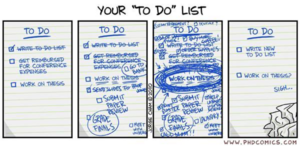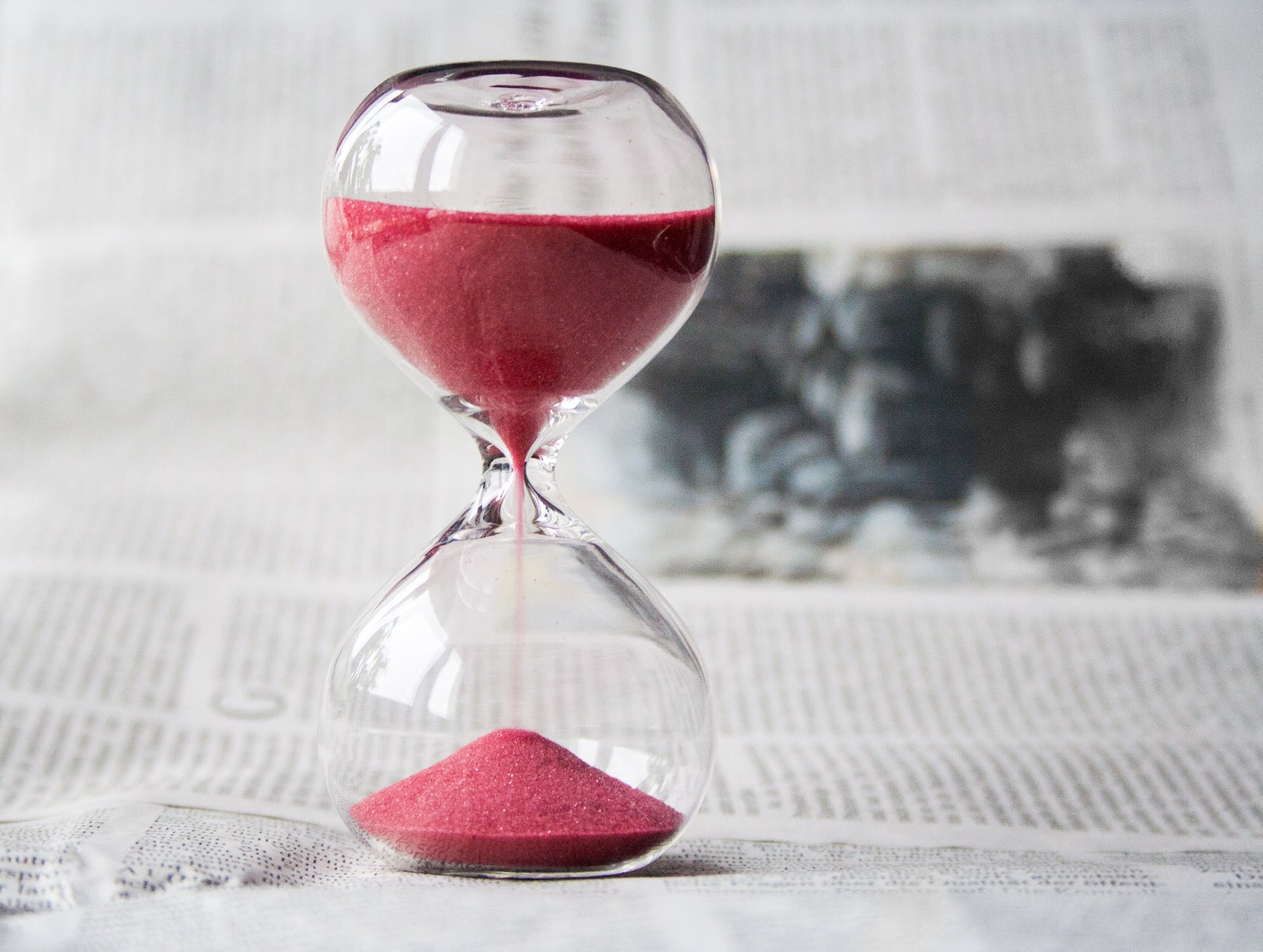 Time Management Tips for Your PhD
Time Management Tips for Your PhD
During a PhD, time always feels scarce and the days seem to fly by pretty quickly. Combining this with the pressure of the number of things you have to accomplish, the need to achieve a high standard and perhaps a certain lack of clear guidance, you may easily feel stressed. Moreover, completing a PhD is usually an individual process where your progress mostly depends on your own motivation and your organizational skills. For sure, having good time management strategies can be vital and may help reduce anxieties. Time management is all about to make the most efficient and effective use of the time you have, and allows you to deal with your duties, to meet deadlines, and to progress towards achieving your private and professional goals.
Here we propose you some time management tips for your PhD. Remember that people have different time clocks and approaches to manage their time implying that what may work for another PhD student might not work for you. Why not experimenting them to figure out what works and what does not work for you ?

1. Draw a general timeline of your PhD
Drawing a long-term plan of your PhD using a Gantt chart is a very useful way of showing tasks against time. Building such a general timeline will help you to picture the main steps of your PhD and its major deadlines and to have a global vision of your path. It will allow you to be more pragmatic and then to plan each year, month or week of your PhD. Remember that your plans may (and sometimes should) change during the adventure and your general timeline should allow some flexibility. The excellent blog post of Academiac will provide you guidelines to draw such a timeline.
2. Use a calendar and set schedules
Regularly, e.g. every Monday morning, plan your week/month taking into account your general timeline and your objectives for that week/month. Use a digital calendar to schedule the tasks and the goals you would like to achieve. Try the method called calendar blocking where you use colour blocks to space out time for all your routines, work and social events (you may find some tutorials on YouTube). Be concrete and specific as much as possible when defining your tasks but avoid too many details. Review what has been accomplished at the end of a day and decide if the schedule needs to be changed the next day. Some applications such as iCal will allow you to share specific calendars with your friends, colleagues or family.
3. To Do List
Scheduling using a calendar is not for you? Try the To Do List! Use whatever method and support you prefer: notebook, scrap of paper, smartphone, or online tools such as Todoist or Trello. Write down everything you need to accomplish during your day: this will allow you to brain dump all of the things running through your mind (from reading this important article to buying some eggs or paying the electricity invoice). It may take off some pressure by avoiding you to remember everything. Do not keep putting off a specific task because you do not want to do it or because you know it will be challenging. Procrastination is the enemy of good time management. When you are done with a task, cross it off (quite enjoyable sometimes).
4. Prioritize
You probably have a large quantity of things to do. What should you be focusing on to meet your goals and deadlines? Assess how important and how urgent your tasks and activities are and set priorities. Time management is all about focusing and investing your time where it matters the most. Setting reminders may help to prioritize tasks.
5. Establish routines with your individual habits and preferences
Find your way to work and create a daily routine. Schedule tasks that may require maximum concentration during your “peak” of work. For instance, if you work better during the morning, plan the tasks that need your full attention during the morning and keep for the afternoon the ones where you can invest less energy (e.g. routine emails, …). You may also start your day with an easy task if it is easier for you. Why not trying the Pomodoro technique (i.e. break down work into intervals of 25 minutes separated by short breaks)?
6. Identify and avoid distractions
Identifying massive time consumers and avoiding them is essential to preserve your uninterrupted time for focused work. Switch off your emails and social media notifications for a moment, put your smartphone in a drawer, put headphones or earplugs to isolate and provide you a non-distracting environment.
7. Time off
It is not a contradiction: taking time off will help you being more productive! There is no better booster than having plans after work. If you know you need to leave your office at the certain time suddenly your productiveness increases significantly. What are the things that make you feel your best? Include them in your daily routines. Prioritize your mental health – and your overall well-being!
After all these tips, you do not know where to start? Why not trying to monitor and reflect on how you currently use your time and identify what changes you can apply?




 Version française
Version française